Why Target Biofilms?
Biofilms play a critical role in persistent and chronic infections, making them a key target in effective treatment strategies. These microbial communities form protective layers around bacteria, allowing them to adhere to surfaces such as human tissues and medical devices. Encased in a self-produced extracellular polymeric substance (EPS) matrix, biofilms provide a defense mechanism that significantly increases bacterial resistance to antibiotics—often making them up to 1,000 times more difficult to eliminate compared to free-floating bacteria. This resistance contributes to the recurrence of infections and the failure of conventional antibiotic therapies, highlighting the need for targeted approaches to disrupt biofilms and enhance treatment effectiveness.
Biofilms Are Present In Up To 80% of Chronic Wounds
Difficult to diagnose & treat
Highly organized & adaptive
Polymicrobial
Pathogens protected by Extracellular Matrix
Only a small percentage of pathogens can be identified using standard culture techniques
Resistant to conventional treatment measures
Could increase the incidence of systemic infections
Impact of Biofilms on Wound Healing
Creates a state of chronic inflammation
Produces virulence factors that damage healthy tissue
Evades host immune response
Up to 1,000 times more resistant to antiseptics and antibiotics
Major cause of treatment failure
Up to 30% of biofilm infected wounds remain unresolved following sharp debridement
Mature biofilms reform in 2 - 3 days following debridement
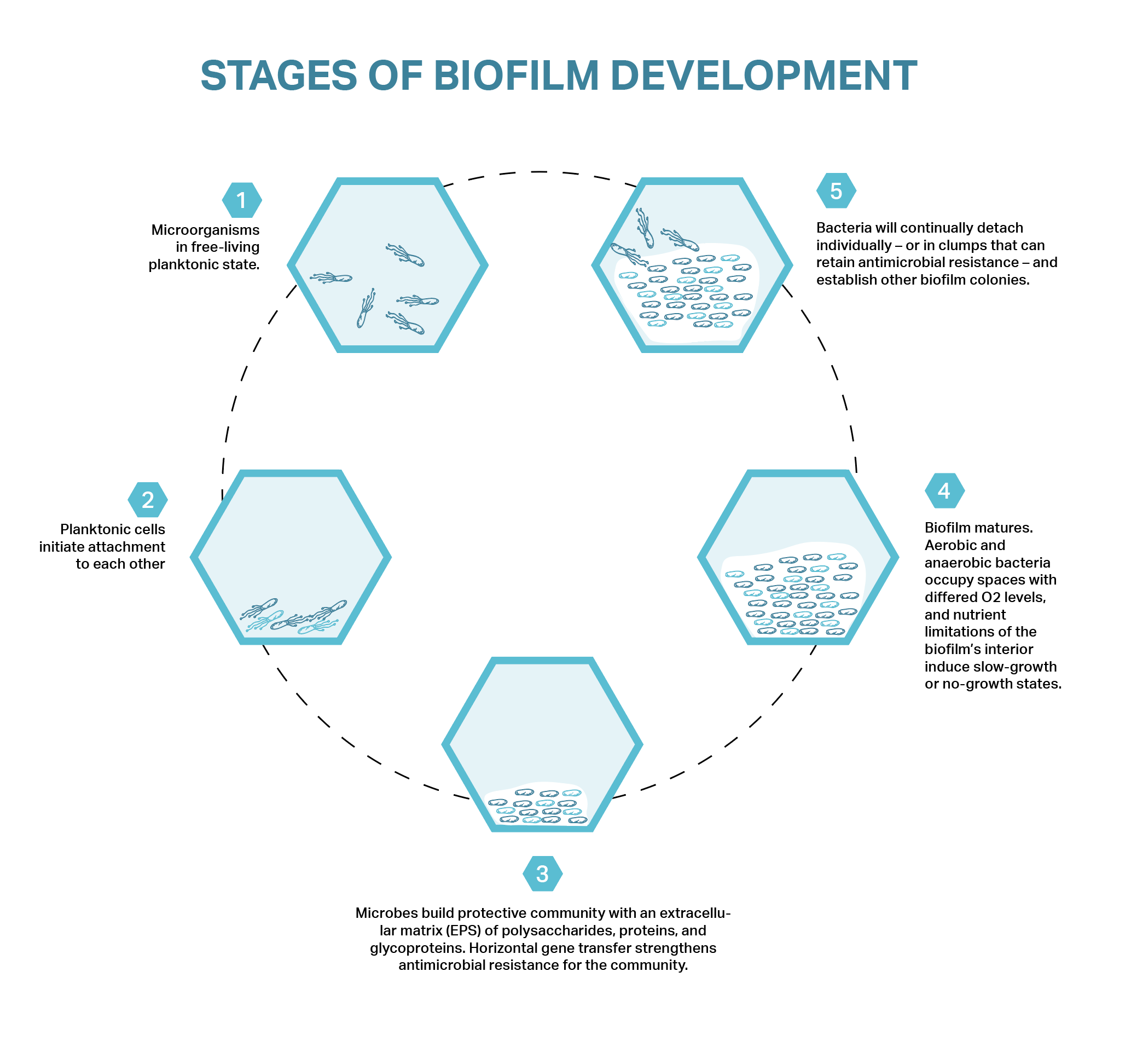
Up to 94% of Chronic Wounds in a Community Setting are Infected
Identifying infection in chronic wounds in a community setting: A systematic review of diagnostic test accuracy studies. Edwards et al. JAN Volume 80, Issue 1, January 2024, pp 73-83.
What Percentage of Skin Grafts Fail Due to Infection?
Infection is a significant factor contributing to skin graft failure, with reported rates varying across studies:
23.7% Failure Due to Infection: A study analyzing skin graft loss in plastic surgery patients found that 23.7% of grafts were lost due to infection.
46.15% Graft Loss from Infection: Research assessing split-thickness skin grafts reported that infection accounted for 46.15% of graft failures, making it the leading cause in that study.
48.6% Graft Loss in Infected Ulcers: A prospective study observed that 48.6% of skin grafts applied to infected ulcers resulted in graft loss, compared to 7.7% in non-infected ulcers.
Topical Application Advantages to Consider Over Systemic Delivery When Addressing Biofilm Infections
| Targeted Rx | VS | Standard of Care |
|---|---|---|
| Topical Application | Systemic (IV, PO, IM) | |
| Does not require vascular transport to reach infection | Requires vascular transport to reach infection site | |
| High and sustained tissue concentrations | Therapeautic dosage is based on the Minimimum Inhibitory Concentration (MIC) for planktonic bacteria | |
| Applied directly to the site of infections for direct contact with pathogens | Low tissue concentrations ineffective against biofilm pathogens | |
| Decreased systemic exposure / toxicity | Systemic exposure could result in side effects | |
| Can deliver multiple medications in one application | Sub-inhibitory concentrations of antibiotics lead to antibiotic resistance and pathogen persistence | |
| Less likely to result in resistant bacteria | Systemic delivery should be reserved for spreading local infections or systemic infections | |
| Can be used in conjunction with systemic antibiotic |
Molecular Diagnostics and Personalized Medicine in Wound Care Assessment of Outcomes
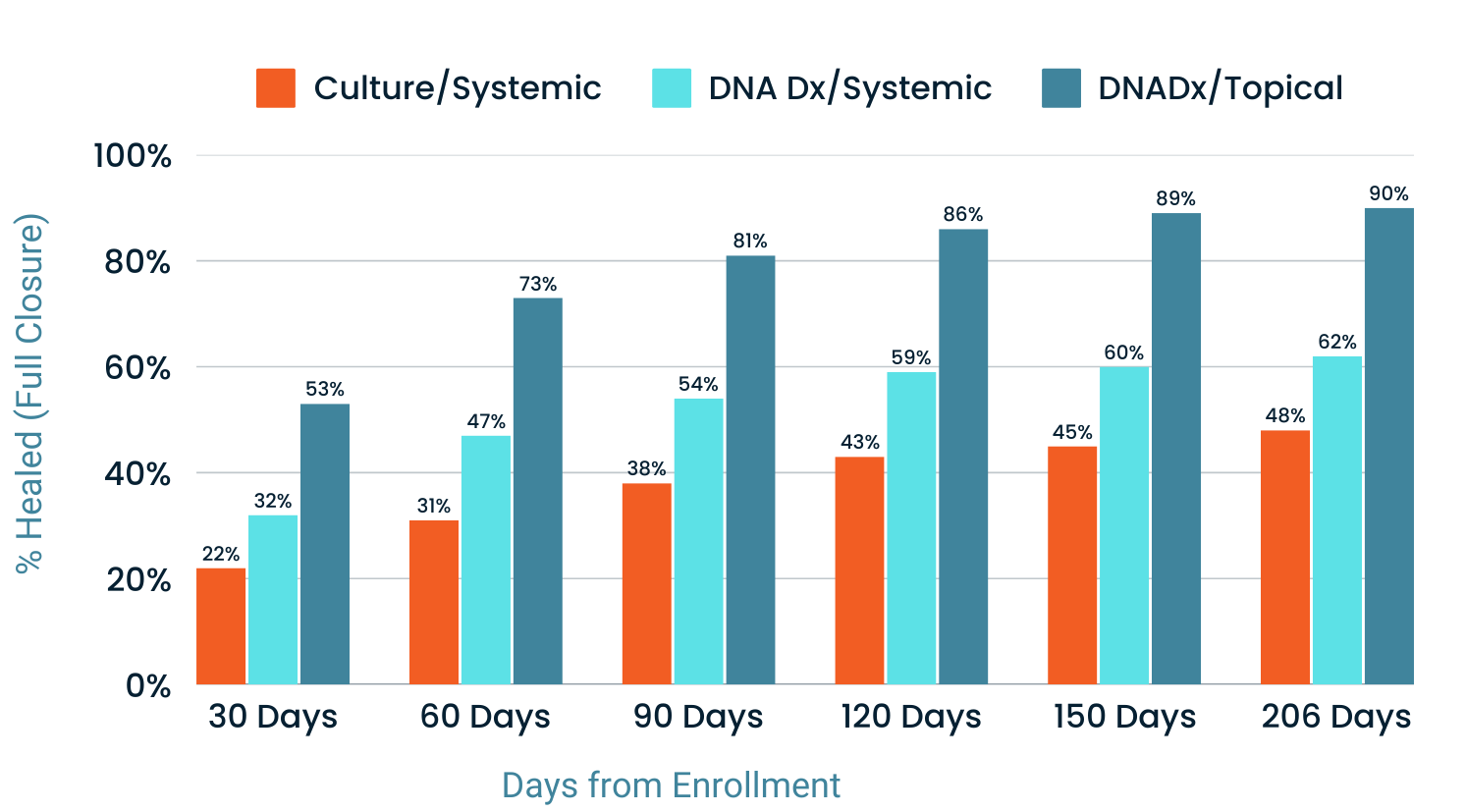
Median Number of Days to Heal by Wound Type
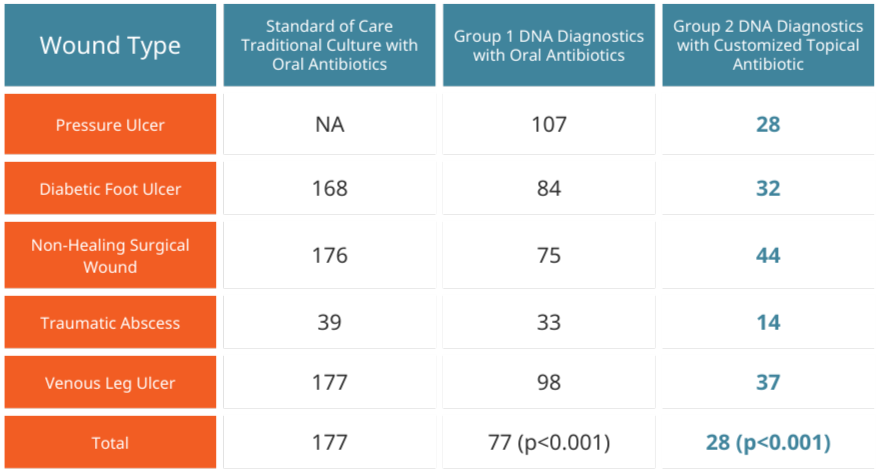
Molecular Diagnostics and Personalized Medicine in Wound Care Assessment of Outcomes
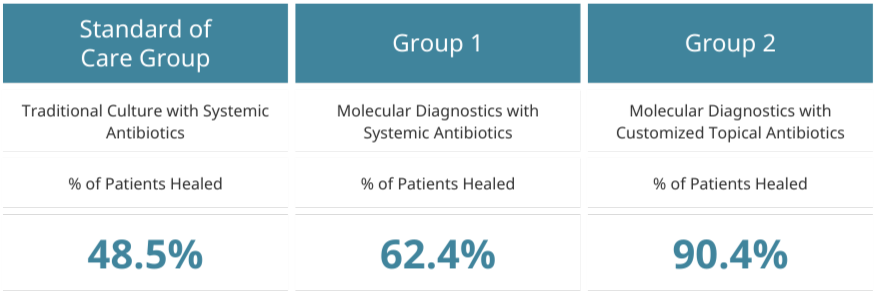
Dowd, S. E., Wolcott, R., Kennedy, J. F., Jones, C. R., & Cox, S. J. (2011).
Molecular diagnostics and personalised medicine in wound care: assessment of outcomes. Journal of Wound Care, 20(5), 232-239. https://doi.org.10.12968/jowc.2011.20.5.232
Management Strategies for the BioBurden of Chronic Wounds
Where precision meets personalized medicine.
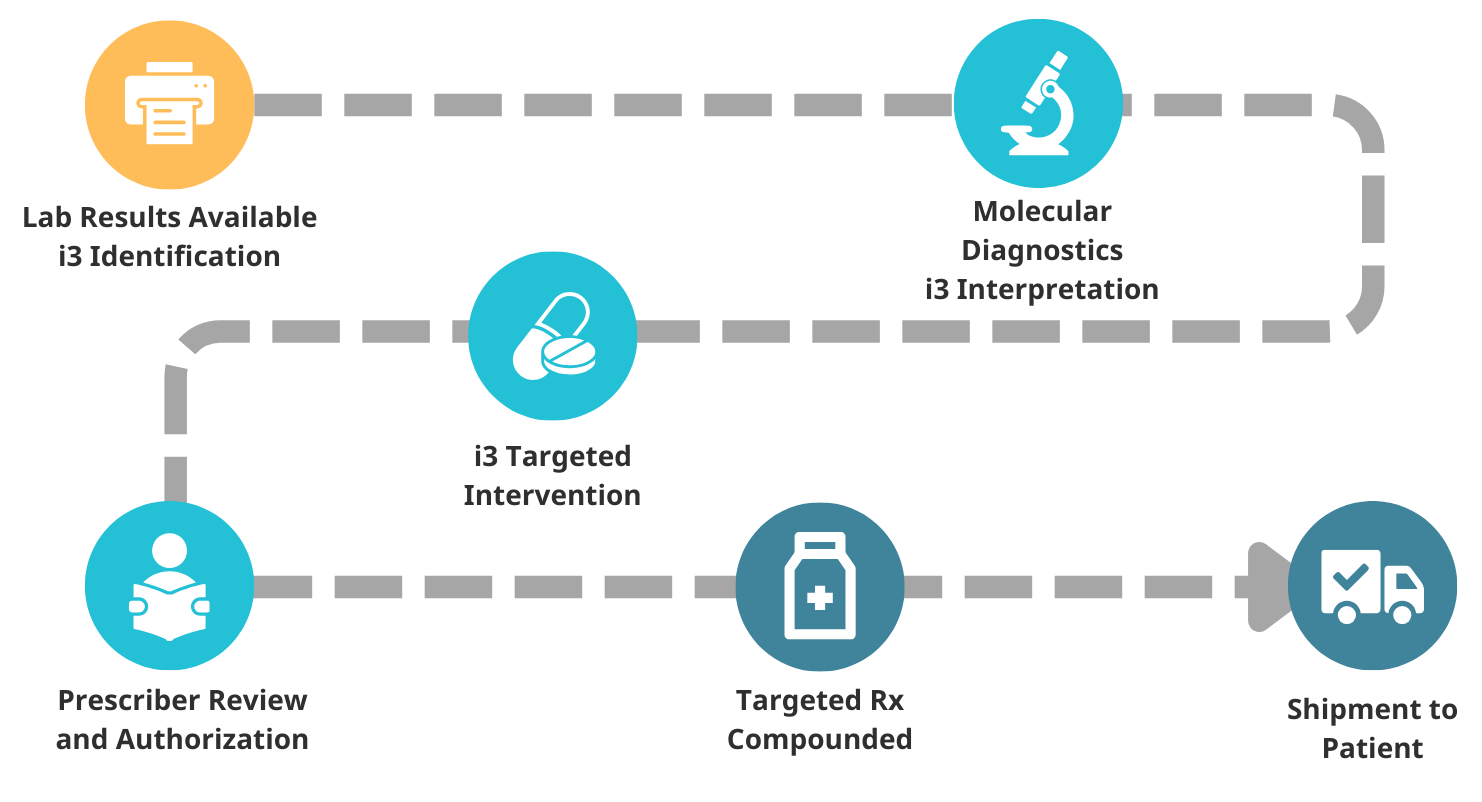
Frequently Asked Questions
Who are Customicro Clinical Services?
We are Clinician driven.
Customicro Clinical Services are supervised and administered by clinicians focused on antibiotic stewardship. We partner with pharmacies to dispense proprietary formulations and product options to manage the wound, sinus, and vaginal microenvironment including a 5R gut health program.
What does Customicro Clinical Services offer?
We service and administer solutions.
Our programs:
+ Offer personalized, patient-centered clinical formulations
+ Offer market leading specialized products
+ Offer a dedicated clinical pharmacist to support our partner providers
How do I partner with Customicro to offer their programs to my patients?
Please fill out our new accounts form and one of our team members will reach out to you as soon as possible. You can also contact us at directly at (480) - 490 - 8921.
Connect With Us
Customicro Clinical Services
10900 N Scottsdale Rd Ste 402, Scottsdale, AZ 85254
(480) - 490 - 8921
Our compounding pharmacy partner,
Customedico Pharmacy + Wellness
We are an independently owned compounding pharmacy dedicated to the provision of personalized medications to meet the unique needs of our patients. Please contact us with any questions or to participate in our programs.
10900 N. Scottsdale Rd #403, Scottsdale, AZ 85254
(480) - 946 - 9477
(480) - 946 - 1345

2025 © Customicro Clinical Services
All Rights Reserved